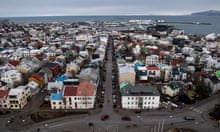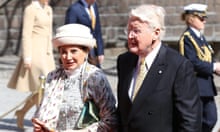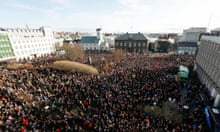Iceland says it has fully reimbursed Britain for the collapse of the Icesave bank in 2008 which left British and Dutch account-holders empty-handed.
“Remember Icesave?”, Iceland’s foreign ministry wrote on Twitter, adding a link to an article about the reimbursement on the English-language website of the Icelandic daily Morgunbladid.
Hundreds of thousands of British and Dutch savers lured by high interest rates lost deposits worth billions of euros after the privately-owned Landsbanki bank, the parent company of Icesave, and other financial institutions went bust when Iceland’s financial system collapsed in 2008.
The Icelandic state refused to cover the losses of the bank’s foreign clients. London and The Hague were left to do so, and they subsequently sent the bill to Reykjavik.
Long, drawn-out negotiations between the governments ensued, and two referendums were held in Iceland on the issue where voters rejected proposals to pay back £3.3bn to the UK and Netherlands. Iceland then won a European Free Trade Association court case on the matter.
However, the Icelandic supreme court ruled in 2011 that the collapsed estate of Landsbanki should repay £4.5bn to the UK and €1.6bn (£1.2bn) by liquidating assets.
On Monday, LBI, the group managing Landsbanki’s estate, said in a statement it had reimbursed all of the “priority” claims, meaning those of the British government and the funds that acquired LBI’s debt to the Dutch central bank.
The final instalment paid out to Britain totalled £374m, according to LBI.
The affair soured relations between Reykjavik and London, with Iceland particularly galled by the British government’s decision to invoke anti-terrorism legislation to try to recoup deposits.
A nation of just 320,000 people, Iceland eventually had to seek an IMF bailout to extricate itself from its financial hole.
Having endured the worst financial crisis in its history, the country finally returned to growth in 2011, boosted by tourism and exports.










Comments (…)
Sign in or create your Guardian account to join the discussion